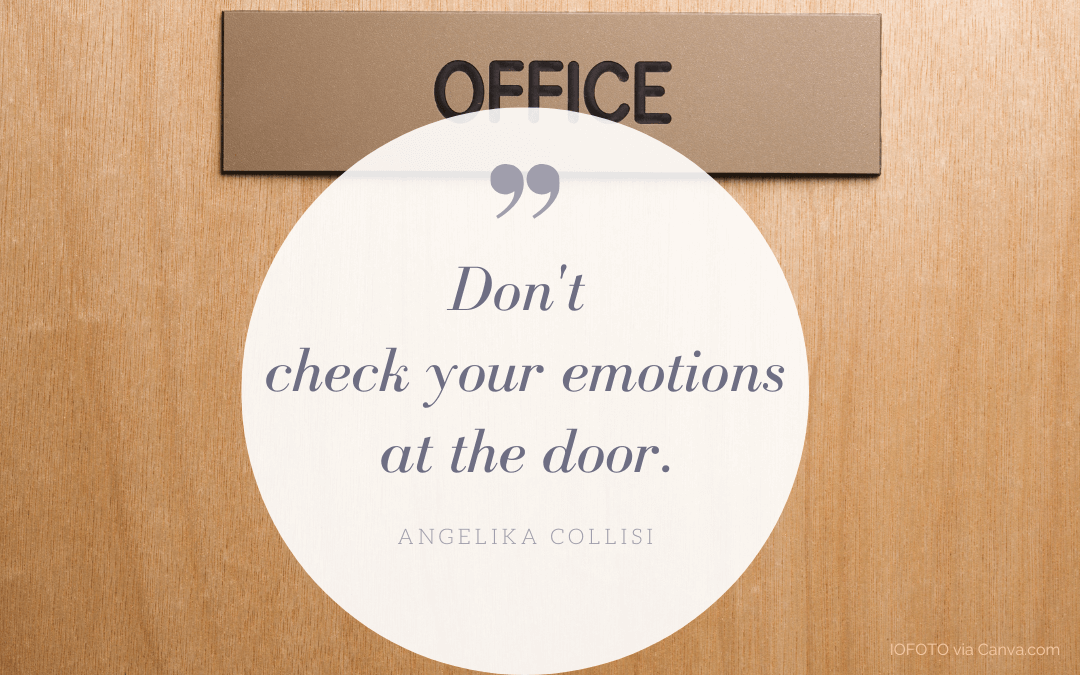Don’t check your emotions at the door.
In the times of AI and chatbots and the accompanying praise for logic and rational thinking, it is hard to follow our own truth. Much of our inner truth is based on psycho-logic, on our subconscious sensations which express themselves in our hunches, intuitive choices and gut feelings.
Emotions have historically had a bad rep. With the advent of the Enlightenment and more emphasis on the natural sciences, the new goddess “Ratio” was worshipped more than other, seemingly more primitive forms of consciousness.
In business, we have been taught for decades to “check your emotions at the door” when we enter an office. As if that was ever possible. It takes a disciplined and mature person who has been working on themselves for a while to be able to handle their emotions in a balanced way when dealing with colleagues, team members, supervisors and clients. After all, we’re only human.
To me, the dogma of rational thinking is the root cause of many of our daily problems in collaboration. Think about it – if you work on the assumption that all the people in the office around you behave rationally because we are now in a business context, then most situations will leave you intrigued, stunned, and plainly confused. Some of the recent tv series portraying rational superbrains, like Scorpion, Elementary and the like are doing a fine job at showcasing this irritation.
In my humble opinion, we would be better advised to accept that we are, alas, human. And I mean not just to intellectually grasp it. But to embrace our human nature, the human nature of our co-workers and clients, and the fact that we are navigating a space laden with emotions, personal interest, insecurities, deep fears, and unconscious beliefs in addition to thoughts, strategies, and logic.
It doesn’t take a psychologist to navigate this space. All it takes is an open mind and an awareness of the unspoken subtleties we call feelings and interest. While our minds are busy with the content of words spoken, the rest of our system is processing a million additional impressions from gestures and mimic to tone of voice, body language and a shift in the atmosphere. These impressions often use the language of emotional imprints. We may feel the same emotion as the person opposite us, thanks to mirror neurons. Or we may find ourselves reacting vehemently before we know what triggered us. That’s where the discipline and working on ourselves comes in.
It is not about checking the emotions at the door, as in “not having any”.
It is about being aware of what is happening emotionally, both in your counterpart and in yourself. And then reacting in a manner appropriate to the situation.
Have I mastered this? No. But I’m well on my way, and I consider it a lifelong journey. Let me know in the comments if you’re with me on that journey!
And if you’re passionate about humans in business, let’s have coffee!

